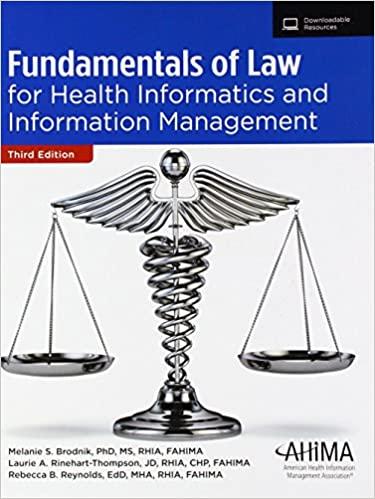Question
TQ 2.1: Was the defendant's behavior in Harper reasonable?If it wasn't, why couldn't he be held liable for the plaintiff's injuries?What distinguishes the defendant's behavior
TQ 2.1:Was the defendant's behavior inHarper"reasonable"?If it wasn't, why couldn't he be held liable for the plaintiff's injuries?What distinguishes the defendant's behavior in Harper from the behavior of the defendants in the other cases we have read so far?Are there any circumstances in which the owner of a boat might owe a duty to warn a passenger that the water is too shallow for diving?
TQ 2.2:What "special relationship" did the court recognize inFarwell v. Keaton?Do you think the court's analysis of this issue is consistent withHarper?If the court had not recognized a special relationship in Farwell, would it have reached the same result anyway?
TQ 2.3:Do Good Samaritan statutes require individuals to provide aid in emergencies?If not, what is their function?Give an example of a Good Samaritan statute that applies only to certain individuals (e.g., health care providers). Give an example of a Good Samaritan statute that provides only partial protection from liability (e.g., one that allows liability in cases of gross negligence or intentional misconduct).
Step by Step Solution
There are 3 Steps involved in it
Step: 1

Get Instant Access to Expert-Tailored Solutions
See step-by-step solutions with expert insights and AI powered tools for academic success
Step: 2

Step: 3

Ace Your Homework with AI
Get the answers you need in no time with our AI-driven, step-by-step assistance
Get Started


